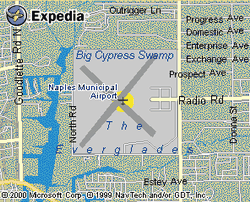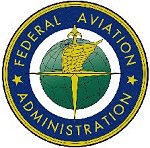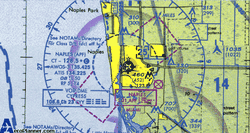Statement Prompted By Naples, FL Noise Restriction
 The
Airport Authority in Naples, Fla. cannot be allowed to impose
restrictions at Naples Municipal Airport that discriminate against
any user, the AOPA has told the FAA. In a legal brief filed this
week in support of an FAA ruling, AOPA said that neither the Naples
Airport Authority nor any airport sponsor that accepts federal
airport improvement funds may be exempted from contractual grant
assurance obligations to make the airport available to all
users.
The
Airport Authority in Naples, Fla. cannot be allowed to impose
restrictions at Naples Municipal Airport that discriminate against
any user, the AOPA has told the FAA. In a legal brief filed this
week in support of an FAA ruling, AOPA said that neither the Naples
Airport Authority nor any airport sponsor that accepts federal
airport improvement funds may be exempted from contractual grant
assurance obligations to make the airport available to all
users.
"AOPA strongly supports the FAA's aggressive enforcement of
airport grant obligations," said AOPA President Phil Boyer. "We
have a national system of integrated airports — a system
established by Congress and administered with a national set of
standards by the FAA. Enforcement of grant assurances is the FAA's
best tool for making sure airport sponsors live up to their
agreements."
Under the FAA's Airport Improvement Program (AIP), airport
sponsors who accept federal funds for airport projects are required
to keep the airport open to all users for 20 years
[which also, includes the Lakeland Linder Regional Airport, who has
also been violating these provisions for years -- EIC]. In 2001,
the Naples Airport Authority established noise restrictions that
effectively barred older, noisier business jets from using the
airport, claiming that the federal Airport Noise and Capacity Act
(ANCA) supersedes grant assurance rules. Unlike Chicago's Meigs
Field, Naples Municipal Airport is under federal grant obligations
because the airport authority has accepted millions of dollars in
federal AIP funds.
 After a
thorough investigation, the FAA's Office of Airport Safety and
Standards reached a number of conclusions, including a
determination that ANCA does not supersede the law establishing
grant obligations and does not delegate the power to regulate
aircraft to local airport operators.
After a
thorough investigation, the FAA's Office of Airport Safety and
Standards reached a number of conclusions, including a
determination that ANCA does not supersede the law establishing
grant obligations and does not delegate the power to regulate
aircraft to local airport operators.
ANCA does provide a very narrow exception that allows local
authorities to deal directly with noise issues. But the FAA
requires that communities seek alternatives before imposing the
most severe remedy of access restrictions. In this case, the FAA
determined that the Naples Airport Authority imposed restrictions
without first trying other measures.
"This law and process obligates a federally funded airport to
comply with federally implemented standards, and to comply with
federal obligations," said AOPA.
 "Failure to hold an airport sponsor, such as the
Naples Airport Authority, to these standards and to the terms of
their contract with the federal government would erode ... the
FAA's authority to manage the nationwide airport network and to
control aircraft noise, and the efficiency of the national aviation
system."
"Failure to hold an airport sponsor, such as the
Naples Airport Authority, to these standards and to the terms of
their contract with the federal government would erode ... the
FAA's authority to manage the nationwide airport network and to
control aircraft noise, and the efficiency of the national aviation
system."
"The bottom line is that airports are not free to establish
their own regulations and restrictions," said Boyer. "The FAA has a
congressionally mandated obligation to maintain uniform nationwide
standards. We're pleased to see the FAA enforcing grant assurances
as a way to uphold those standards."
 ANN's Daily Aero-Term (12.01.25): Convective SIGMET
ANN's Daily Aero-Term (12.01.25): Convective SIGMET ANN's Daily Aero-Linx (12.01.25)
ANN's Daily Aero-Linx (12.01.25) NTSB Final Report: Remos Aircraft GmbH Remos GX
NTSB Final Report: Remos Aircraft GmbH Remos GX Aero-News: Quote of the Day (12.02.25)
Aero-News: Quote of the Day (12.02.25) ANN's Daily Aero-Term (12.02.25): Coupled Approach
ANN's Daily Aero-Term (12.02.25): Coupled Approach





